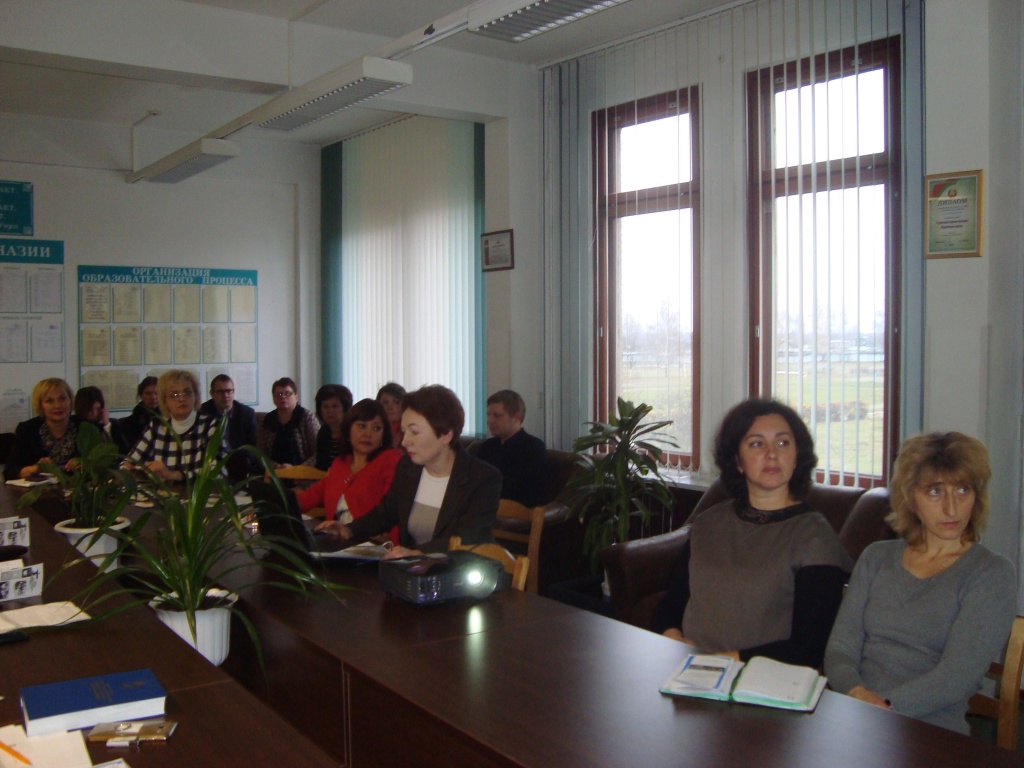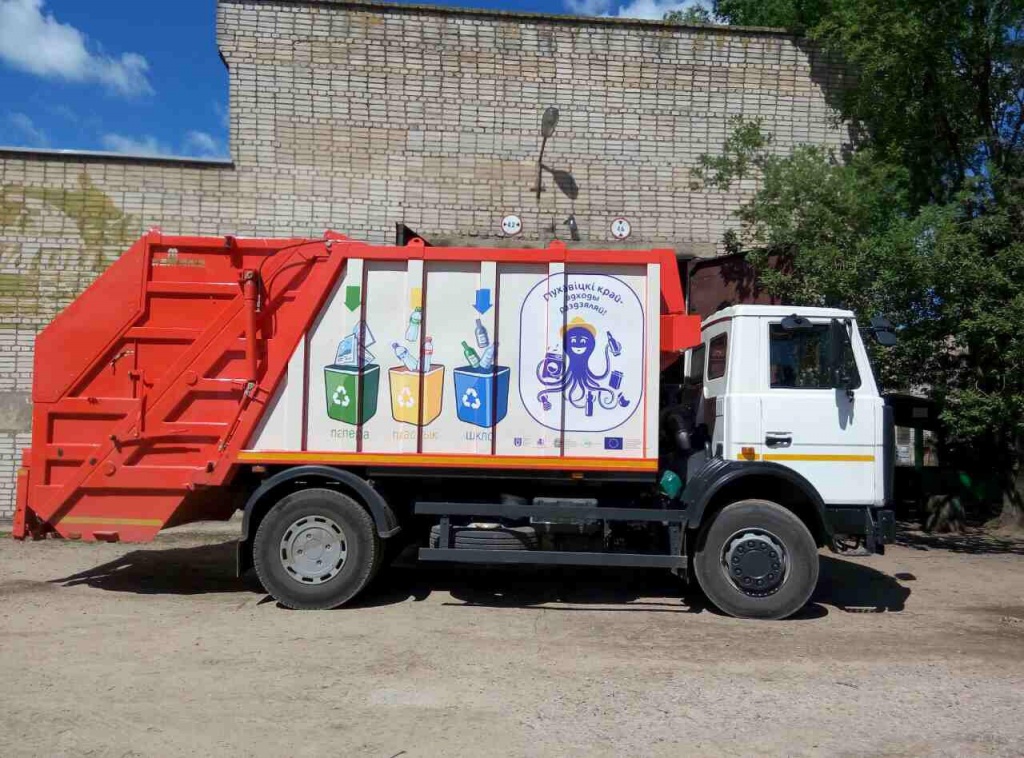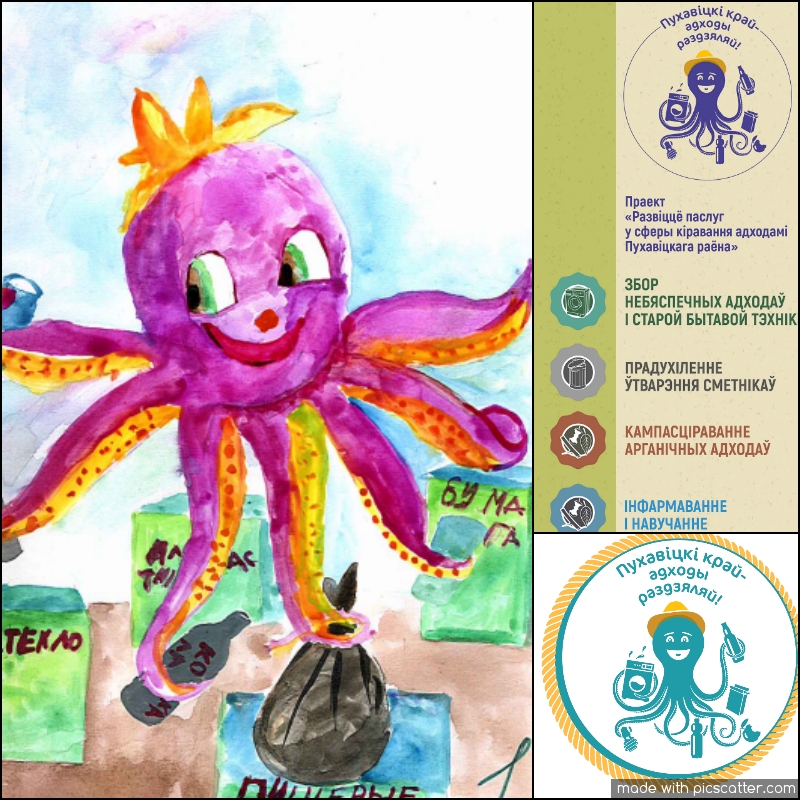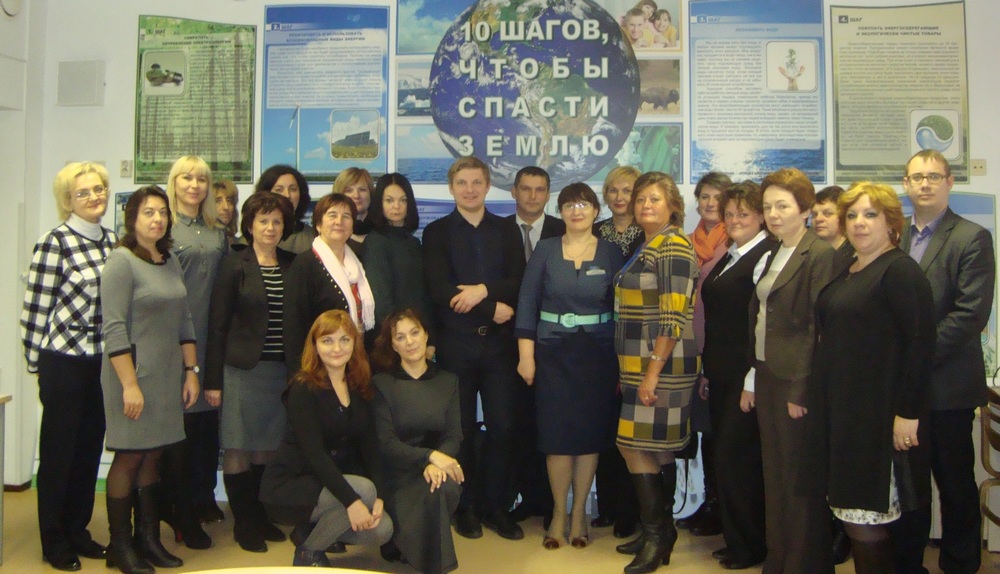On November 9, 2017, a seminar for teachers of the Minsk region was held at the Marjinahorskaja Gymnasium, where various practices of environmental education were considered.
Its organizers were the Minsk Regional Institute of Education, together with the Puchavičy District Department of Education, Sport and Tourism, and the gymnasium itself.

The venue was not chosen by chance. On the basis of the Puchavičy Gymnasium, a green roof has been created, and a container for composting organic waste has been installed. The objects were created within the framework of projects financed by the European Union ‒ "Supporting the Transition to a Green Economy in the Republic of Belarus" and "Strengthening Waste Management Services for the Rural Population of Puchavičy District, Minsk Region". Introduction to these innovations has become one of the blocks of the seminar program.
During the speeches, experts told about the information and practical work on waste management in the Puchavičy district, the educational opportunities of wildlife corners and information centers on resource saving in the Minsk region.

The experience of the information and educational activities of the project “Strengthening Waste Management Services for the Rural Population of Puchavičy District, Minsk Region”, funded by the European Union, was of great interest. It was presented by Irina Lastovka, a specialist in environmental education of the IPO "Ecopartnership".
‒ In the Puchavičy District, the topic of proper handling of waste has acquired its visual expression. We held a competition of children's drawings and selected a character that became the basis for the development of the logo of our project. We are talking about an octopus, which holds in its tentacles various types of waste, thereby demonstrating that they need to be divided and sent for processing. Now we use this image actively when creating various information materials of the project, both printed and electronic, we place it on souvenirs, billboards and even decorated them with a garbage truck. In our opinion, the character not only draws attention, but also creates a sense of belonging among the residents of the Puchavičy district and fixes the correct behavior patterns, ‒ Irina Lastovka emphasized.

The specialist noted that due to the project, the region regularly conducts training activities on waste management for teachers, competitions, information campaigns, and 6 compartments for composting green waste. After installation of battery collection containers in educational institutions, a number of activities are planned to encourage students to avoid throwing out used batteries into general garbage.
Participants of the seminar also learned about the plans of the Marjinahorskaja Gymnasium to use special worms to produce biohumus. At present, students learn how to look after them properly and observe behavior. The possibility of using worms in an educational institution also came about thanks to the EU project.






